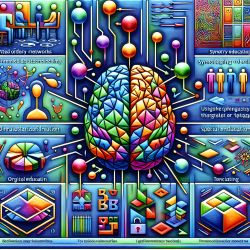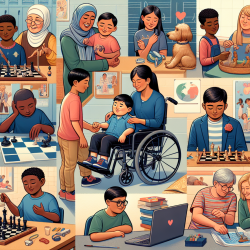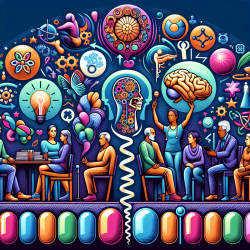In an increasingly diverse world, cultural competence in rehabilitation services is not just an added benefit—it’s a necessity. The research article, Barriers and facilitators to cultural competence in rehabilitation services: a scoping review, sheds light on this critical issue, offering valuable insights that practitioners can implement to improve their skills and outcomes. Here’s how you can leverage the findings from this research to enhance your practice.
Understanding Barriers to Cultural Competence
The research identifies several key barriers that hinder the delivery of culturally competent care:
- Language Barriers: These can impede effective communication, rapport building, and treatment compliance.
- Cultural Differences: Varying beliefs about disability, independence, and gender roles can complicate service delivery.
- Limited Resources: A lack of culturally and linguistically appropriate materials, bilingual practitioners, and interpreters poses significant challenges.
Facilitators to Overcome These Barriers
On the flip side, the research also highlights facilitators that can enhance cultural competence:
- Cultural Awareness: Understanding the cultural backgrounds and health-related goals of patients helps tailor care effectively.
- Culturally Competent Work Environment: Training, diverse workforces, and flexible service models can create a supportive environment for minority patients.
- Healthcare System Explanations: Educating patients about the healthcare system, available resources, and the benefits of compliance can improve engagement and outcomes.
Actionable Steps for Practitioners
Based on these findings, here are some actionable steps you can take to improve cultural competence in your practice:
- Enhance Cultural Awareness: Engage in cross-cultural encounters, attend cultural events, and educate yourself about different cultural histories and practices.
- Foster a Culturally Competent Work Environment: Advocate for training programs on cultural competence and utilize interpreters and culturally appropriate materials.
- Improve Communication: Learn key phrases in your patients' languages and use visual aids to support communication.
- Provide Clear Explanations: Ensure that patients understand the healthcare system, the purpose of therapy, and the importance of compliance.
Encouraging Further Research
While this review provides a solid foundation, there is a need for more research, especially from the perspectives of patients and caregivers. Understanding their experiences can offer deeper insights and help develop more effective, culturally competent practices.
To read the original research paper, please follow this link: Barriers and facilitators to cultural competence in rehabilitation services: a scoping review.










